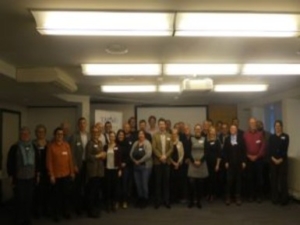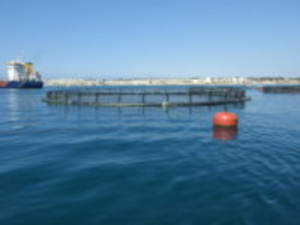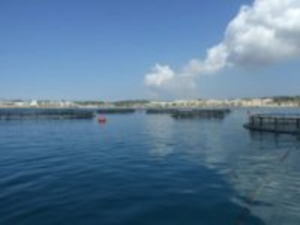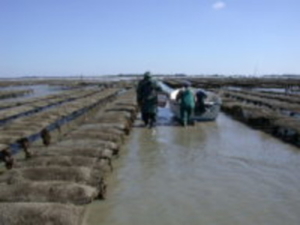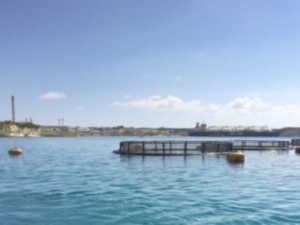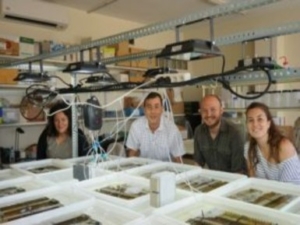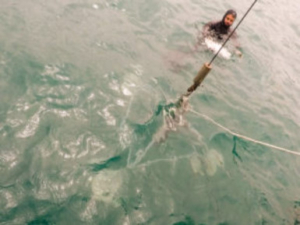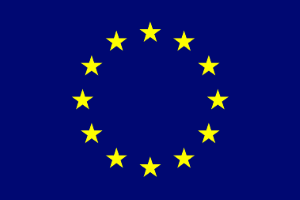The TAPAS consortium uniquely combines partners with substantial and complementary experience in aquaculture operation and research, in carrying capacity, spatial analysis, modelling and remote sensing, in situ monitoring, environmental risk assessment, societal and policy analysis and decision support and user training. These combined competencies will ensure the successful achievement of all project objectives and impacts in a timely manner.
Deliverable 9.7 Proceedings from a terminal TAPAS conference in Brussels
29/02/2020 The conference was held to give partners the opportunity to present the work that carried out during the project, some of the technologies that were developed, and the applications of these to European aquaculture.
Deliverable 9.8 TAPAS Videos uploaded to social media
20/02/2020 The aim of this report is to provide an overview of the videos created within the EU H2020 TAPAS project. The project videos are uploaded on the YouTube channel of TAPAS, created on the 3 rd of October 2017.
Deliverable 9.6 Translations of the TAPAS Sustainability Toolbox manuals
23/02/2020 This report includes the translations(German, French, Russian, Spanish) of the TAPAS Sustainability Toolbox manuals. The web-based Toolbox was created for aquaculture license applicants and decision-making authorities
Deliverable 9.5 Production of TAPAS exhibition materials
20/02/2020 This report provides a summary of visual materials created by the TAPAS team for future exhibitions, events, conferences and workshops. Visual materials are awaking public interest,in providing short introduction of the project objectives.
Deliverable 9.4 Development of TAPAS e-learning course materials
26/02/2020 This document is to report about the e-learning materials produced for deliverable 9.4 of the TAPAS Toolbox, developed in the EU H2020 TAPAS (Tools for Assessment and Planning of Aquaculture Sustainability) project.
Deliverable 8.5 Hands-on manual for Aquaculture Sustainability Tools
16/12/2019 This document includes the Hands-on manual for the Aquaculture Toolbox developed in the EU H2020 TAPAS (Tools for Assessment and Planning of Aquaculture Sustainability) project.
Deliverable 8.4 Aquaculture Sustainability Decision Support Tool
06/12/2019 This report aims to help in communicating the needs for licensing of European aquaculture now and in the future, and to inform the “conversation” between all stakeholders for implementing an improved approach to aquaculture governance in line with potential future EU policy.
Deliverable 7.6 Automatic in-situ measurement systems report
16/12/2019 In this deliverable the development of new in-situ observation technologies of physical, ecological and chemical water quality including novel biosensors and optical sensors, as well as monitoring the integrity of the cage material is presented.
Deliverable 6.5 Algorithm sets for Sentinel3-OLCI relevant to a range of aquaculture environments
20/02/2020 This document represents a number of state-of-the-art approaches to using the latest generation of ocean colour sensors for water quality monitoring in environments relevant to aquaculture.
Deliverable 6.4 Future scenarios maps and documentation for toolbox
20/02/2020 This document serves as reference for the future scenario maps produced by the decadal hindcast simulations of TAPAS regional models (i.e. “Far-fields models” in TAPAS terminology) and their documentation as Case Studies and Interactive Tools for the TAPAS toolbox.
Deliverable 5.8. Integrated spatial framework for a representative number of case study areas
20/02/2020 This report presents an overview of the site selection frameworks developed as part of the Tools for Assessment and Planning of Aquaculture Sustainability (TAPAS) project, an EU H2020 research project.
Deliverable 3.7. Delivery of environmental qualitystandard database andrisk scenarios
06/12/2019 This deliverable builds on deliverable 3.5 which describes the scenarios and models used. As deliverable 3.5 already provides the risk scenarios, this deliverable will only focus on the environmental quality standard database.
Deliverable 2.5. Draft consultation report on new and flexible approaches
05/03/2018 The enclosed document will serve as a discussion document to engage and collaborate with regulators and stakeholders to develop and ground-truth solutions and to ensure the acceptability and utility of the approaches.
Deliverable 3.3. Model development and design workshop
08/05/2017 The report assesses the impact of potentially toxic substances to aquatic ecosystems surrounding aquaculture farm. It provides an ecologically relevant link between aquaculture management practices and their associated biological impacts.
Deliverable 4.2. Ecosystem services workshop final report
02/03/2017 This report presents an approach to the assessment of ES related to aquaculture and represents a background document and a departure point for building a general framework for the assessment of ecosystems services in the TAPAS project.
Deliverable 3.2. Workshop to evaluate the ERA models
01/11/2016 The Environmental Risk Assessment (ERA) of potentially toxic substances of the TAPAS project meeting had been held between 24th and 26th October 2016
Deliverable 4.1. Ecosystem services workshop
07/10/2016 This report describes the first stakeholder workshop, which was on an informative/ consultative level. The balance between public perceptions, benefits of aquaculture and ecosystem impacts
Deliverable 7.1. Inventory of in situ data sets
13/09/2016 The information compiled in this deliverable will support partners to identify the gaps in data sets required to improve existing models and validate new ones.
Deliverable 5.1. Critical Evaluation and Suggestion of Models
30/06/2016 The report was completed within the first four months of the project and covers near-field models (defined as farm level to water-body scale) currently used for either regulatory or scientific purposes to assess nutrients/wastes.
Deliverable 9.11 Press release for participating countries
01/05/2016 Each press release included information about the TAPAS project, about the coordinating organization and about each organization in the specific participating country.
Deliverable 3.1. Report and scientific article of ERA models
This report describes the state-of-the-art on the development of models capable of assessing the fate, dispersal, exposure, ecological effects and associated ecotoxicological risks of veterinary medicines applied in aquaculture production.

